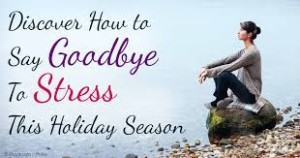Archive | December 2021
Safety Tips for New Year’s Eve!
If possible; Plan a Sober Ride
Drinking during New Years is not uncommon. But if you do choose to enjoy a cocktail or two, keep yourself and those around you safe by planning for a sober ride. Ask a sober friend or family member to take you home. Take an Uber, planned ride or even an old fashioned cab if that is your preferred method. You can even take a bus or train depending on where you live and where the party is from. Even in your sober ride, act appropriately so your driver can pay attention to the road. Remember, your driver may be sober, but there’s likely another driver near that is not.
Don’t Drink and Drive:
This first New Year’s safety tip is obvious for a reason. Drinking and driving is not only dangerous to yourself but also everyone else in the vicinity of your vehicle. It should come as no surprise that January 1st has the highest percentage of deaths related to alcohol, according to the Insurance Institute for Highway Safety data. Between 2007 and 2011, 42 percent of all traffic deaths during the holiday were directly caused by alcohol. Keep others from driving while intoxicated by suggesting they use other methods, like an Uber.
Eat Dinner:
This may seem like an odd New Year’s safety tip, but a full stomach is a great way to avoid alcohol poisoning.
Try to consume foods high in protein such as cheese, meat and nuts. These types of food will slow down the absorption of alcohol in the digestive system. This will give the alcohol more time to metabolize in the body resulting in a lower risk of alcohol poisoning. Our liver metabolizes about one alcoholic drink per hour. A good rule of thumb is a 12 oz. beer = 4-5 oz. of wine = 1.5 oz. of hard liquor. By sipping a drink rather than chugging it, your body will have more time to metabolize the alcohol which will result in less of a hangover. Consider ordering an appetizer if you’re out at a restaurant or snack on nuts while drinking at a bar.
Pet Safety:
Nothing frightens pet’s more than sudden loud noises. Extra attention must be given so your pets won’t run away in a panic. Scared, running pets can be hit by cars, cause accidents, and become lost…not to mention, frequently bite people if scarred or threatened.
Wait to Post on Social Media:
Yes, it’s tempting to document your holiday celebrations online with friends and family, but recommended is waiting until you’ve returned home to share. You never know who’s looking at your account and what their intentions may be.
These are five fairly simple New Year’s safety tips that can simply save your life. Don’t let the dangers of New Year’s ruin your celebration. Be prepared, have a good time, and have a happy New Year’s!
Fireworks:
When it comes to explosives, follow the same rules on New Year’s Eve that you would any other time of the year: Leave it to the experts. The best way to enjoy fireworks is to watch a public exhibition from a safe distance. If you feel you must light your own fireworks never allow children to handle or light any kind of fireworks.
QUOTE ON THURSDAY:
‘The increase in automobile accidents is primarily due to an upward tic in the number of intoxicated drivers on roadways across the country. Over 33 percent of automobile collisions that occur during the holiday season involve an intoxicated driver.
National Highway Traffic Safety Board.
QUOTE FOR WEDNESDAY:
“Whether you’re shopping for gifts online or gathering for in-person or virtual holiday celebrations, it is important that everyone takes steps to keep holiday festivities safer. Avoid a visit to the emergency-room this holiday season by following some simple safety guidelines.”
Unsafe toys, cooking fires, decorating, holiday trees and candles lead to thousands of injuries and deaths each year. People can celebrate more safely this holiday season by making a list of safety precautions and checking it twice.”.
said CPSC Chair Alexander Hoehn-Saric / Centers for Disease Prevention and Control (CDC)
QUOTE FOR TUESDAY:
“The act of thinking about the stressful situation leaves less mental room to think about other things, which can “dumb us down” in the short run. In the long run, there is evidence that people who are chronically stressed are more likely to develop dementia. Evidence also suggests that high levels of chronic stress can damage neurons in our brains, particularly neurons in the hippocampus, where new memories are made. Stress also increases the chance of developing depression, which in turn can impair memory performance. “Merry Stressmas!” It should come as no surprise to learn that the holiday season (November through December) is often considered the sixth most stressful life event. Of people surveyed in a national study. What can we do when the “most wonderful time of the year” is anything but calm. Evidence also suggests that high levels of chronic stress can damage neurons in our brains, particularly neurons in the hippocampus, where new memories are made. Stress also increases the chance of developing depression, which in turn can impair memory performance. There are ways to reverse stress.”.
Dr. Rob Winningham / Presbyterian Senior Living
Minimizing holiday risk factors while being merry!
Minimizing Risk while Making Merry
Why hearts attacks increase during the winter holiday season is not entirely clear, but the fact that they do means that you need to pay particular attention to your health during the cold weather months. Here are some tips to follow to keep you going through the holiday season and beyond:
-Enjoy special meals in moderation. Avoid or limit high fat items like gravy, fattier cuts of meat, and buttery side dishes, while including fresh vegetables and fruit.
-Drink alcoholic beverages sparingly, avoiding multiple drinks at one sitting.
-Maintain a regular exercise schedule to avoid weight gain and reduce stress. In frigid or bad weather, consider indoor options, like a gym, mall-walking or a fitness DVD.
-If you do shovel, take your time. Proceed slowly and carefully and don’t over-exert yourself.
-Don’t skip your medications. If you’re traveling, pack twice as many in case your flight gets delayed and keep them in your carry-on bag if you’re traveling by air. Be sure to bring a list of medications, health issues, allergies and physicians with you, and keep this in your purse or wallet.
-If you are older than 65 or have heart disease risk factors, get a flu vaccine.
-If you have congestion in your nose or chest, avoid decongestants and use natural methods such as steam or neti pots.
Don’t allow the holidays to break your heart. Stay in tune with your body and be aware of any drastic changes, whether physical or emotional. By limiting intake of indulgent foods, taking time to de-stress, and seeking treatment for health issues as soon as they appear, you can ensure a holiday that’s not only heart-warming but heart-healthy, too.
Every holiday season, there is a five percent increase in heart-related deaths. To take charge of your heart health during this chaotic time, practice these simple tips.
- Plan for leftovers – Overeating and the so-called “food coma” sometimes comes at a high price. A big, high-fat meal diverts blood from the heart to the digestive system and can actually trigger a heart attack, angina or heart-related chest pain. Instead, invite friends over the following day for leftover brunch.
- Serve healthy foods – Fill your holiday table with heart-healthy sides, such as cauliflower mash and colorful vegetable sides.
- Make it a potluck – Have friends and family contribute to the evening by bringing one of their favorite dishes. This division of labor will allow for everyone to feel involved, and lessen the workload for the hosts.
- Limit your alcohol – Aside from a headache, too much alcohol can, in the long term, raise your blood pressure and, in the short term, trigger atrial fibrillation – an irregular heartbeat that increases your risk of stroke.
- Stay active – Walking the shopping mall is one way to stay active, but if you can’t get through the crowds, put on a jacket and take a walk around the block or play a game of tag football in the backyard with family members. Thirty minutes of moving can be the best part of your day, and help burn some of those calories!
- Reduce stress – Remember that the holidays are about spending time with loved ones. So even if everything isn’t perfect, it’s still a time to gather and reminisce.
- Don’t ignore unusual pain or discomfort – If you experience chest pain or pressure, fatigue, shortness of breath, nausea, jaw or back pain, don’t assume it will go away. These are all symptoms of a potential heart attack and require prompt medical attention.
- Don’t smoke know matter what it is – something tells me you knew this already.
QUOTE FOR MONDAY:
“The W/E after Christmas can be a great day for taking a break from cooking. You might want to go out to a nice restaurant and have some one-on-one time with your spouse – or maybe you would rather stay home and order pizza. Relax: On the day after Christmas it is very likely that your kids will be busy playing with their new toys.”.
MAYO CLINIC
QUOTE FOR THE WEEKEND:
QUOTE FOR THE FRIDAY:
“Tis the season for attending parties galore (yes, Zoom celebrations count, too!), decking your halls–and, of course, your Christmas tree–with festive decorations, checking out all the magical light displays, and binge-watching classic holiday movies. Not to mention spending Christmas Day (and eve!) living up the holiday!
So it’s no surprise that the prospect of spending Christmas alone–whether for the first time or the twentieth time–can feel, well, not always so merry and bright. But here’s the thing: You’re not alone. The reality is that plenty of people spend their holidays solo. Some people have demanding work schedules that make it difficult to travel, while others might not have the money for expensive round-trip tickets, and others simply want to spend Christmas alone. That’s true in a normal year—but perhaps even more so in 2020, when many of us will be celebrating Christmas without friends or family due to the ongoing coronavirus pandemic and social distancing guidelines.”
Oprah Daily
QUOTE FOR THURSDAY:
“The holidays can be a joyful time, offering a chance to reconnect with friends and family. But they can also be stressful. You may feel pressure to buy and give gifts. Maybe you are worried about money. The holidays can also be hectic. There never seems to be enough time to get things done. Think about the kinds of events that trigger stress for you during the holidays. Then you can focus on one or two things you can do that will help the most to reduce stress.”
University of Michigan Health/Michigan Medicine (https://www.uofmhealth.org/health-library)





